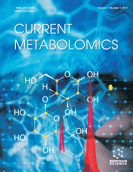Abstract
Background: Biofuel research has gained considerable interest in the recent past since these are renewable fuels and are considered environment friendly unlike their conventional counterparts. Microbes play important roles in most aspects of biofuel production particularly hydrolysis of biomass, lipid production, fermentation of sugars and production of advanced biofuels.
Methods: In the present review, we have discussed some interesting studies pertaining to strain engineering of microorganisms for improved uptake of multiple sugars, consolidated bioprocessing, production of advanced fuels, and biofuel production in photosynthetic microorganisms.
Result: Genetically manipulated microbes for co-consumption of multiple sugars, especially glucose and xylose which are abundantly present in hydrolysate of lignocellulosic biomass, have improved the overall efficiency of the whole process. Besides, some designer microbes have been reported for consolidated bioprocessing that aims at a single-step cellulosic biomass fermentation thus cutting down the cost involved in various processes. There are also interesting reports of engineered microbes capable of producing high titers of advanced fuels such as butanol and isopropanol. Engineered photosynthetic microbes such as microalgae and cyanobacteria are promising sources of enhanced lipid and alcohol production. The ability of photosynthetic microbes to grow in water, thus not competing for arable land, make them suitable for production of sustainable fuel.
Conclusion: Biofuels have the potential to completely replace fossil fuels in future but the current production of biofuels is unable to fulfil the global fuel requirement. Microorganisms play an important role in various aspects of biofuel production. Microbial strains have been developed to overcome some of the challenges in biofuel production such as lack of multiple sugar assimilation, intolerance to inhibitors and solvents, and low titer of the products. In spite of all the advancements, more improvement is needed in order to achieve the fuel titers high enough for economically sustainable production. The pace at which this field is advancing, there exist possibilities of synthetic microbes designed with engineered minimal genome to produce desired fuels and chemicals at industrially relevant levels.
Keywords: Advanced fuel production, algal fuel, biofuel, consolidated bioprocessing, genetic manipulation, multiple sugar assimilation.
 77
77 1
1








.jpeg)








